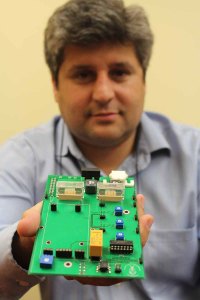DAY 11
The Language surprise
In Commissioner Street, Johannesburg’s “first” Chinatown, there is a small grocery shop called the “The Canton Shop”. Ling Cen, a petite 52-year-old, has managed the shop since the late 1990s and her husband, Fok Zi Xian, a maths teacher, assists her. The couple came to Johannesburg with their young daughter Cecilia because some family members had settled here and they wanted to make a better living.
I walked into the Canton Shop today, purely by chance and hoping to try my luck. For a while, fellow journalist Nomatter Ndebele and I just spoke to Ling, trying to gain her trust. As she opened up more and told me little titbits of her life, I thought she would be a very good source. The family came to South Africa in the early 1990s, just like Jilly Sue and have their story to tell.
But the most interesting conversation of the day I had was not about my in-depth project, nor was it with a source.
The most interesting and shortest conversation I had had with a Chinese person during the week so far had been with an Chinese man, a customer who came into the shop and then disappeared, raising more questions for me than answers.
This is my quirky, little story for the day. And it has actually stayed with me more than any other conversation.
As I talked to Ling, her attention was drawn to an old man who just walked into the shop, while thunder growled outside. He was very old, one could see, but to guess his age was harder than winning Cluedo. Ling walked out from behind the counter to go and greet the man.
He had liver spots on his face and hands, his shoulders sagged and his faded dark green t-shirt was covered in lines of dust. Tufts of fluffy grey hair stuck up from his head. Ling spoke to him in Mandarin, but I could guess the questions, as she pointed to his shirt. Suddenly she spoke in English, presumably for my benefit.
“You all covered in dust, you sweep the floor?” She looked at me and smiled.
The old man noticed me and said hello before he turned to Ling and asked her for some green vegetables (which were an unknown type to me).
While Ling weighed the vegetables, the old man silently appraised me. Then, abruptly:
“How many languages do you speak?”
The question caught me off guard. I was used to asking the questions, or to explain my project. I did not see this one coming.
“Errr… I speak three: English, Afrikaans and German.”
I don’t count my knowledge of French, most of my undergraduate French flew off to Paris after graduation. I could only remember the travel phrases.
“Praat jy Afrikaans? Hoe gaan dit?” (Do you speak Afrikaans?)
“Ja Oom. Goed dankie en met Oom?“ (Yes Uncle. Well thanks and how are you?)
He was distracted for a moment and spoke to Ling’s husband. Then he turned his attention to me again.
“Sprechen Sie Deutsch?” (Do you speak German?)
“Ja so ein bisschen, aber ich habe seit lange nicht viel gesprochen.” (Yes, a little, but I haven’t spoken it for a long time.)
Next question.
“Parlez-vous francais?” (Do you speak French?)
“Pas du tout.” (This was the only response I could think of. There goes my French.)
He paid for his vegetables and then hovered at the entrance.
Ling looked at him and laughed. “Why you stay now? Because there is a pretty girl you don’t want to leave?”
The old man scowled at her. “I can speak her dialect and understand her, but she can’t speak my dialect or understand me.” He said this in English, three times.
Still he hesitated. Next question. He spoke in Russian and in Zulu. I think he asked the same question but I shook my head and apologised. Cannot answer back in those languages.
“Where did you learn all the languages?” I asked.
“I learn them.” Short answer.
Ling decided it was time for a new game.
“You know how old he is?”
Time to guess. “Eighty years old.”
Ling shook her head and smiled. “More than eighty.”
Guess number two. “88 years old.”
Again shake of the head and the smile. “No. more than 88 years old.”
Guess number three. “Ninety years old.”
Shake and smile. “No. More than ninety.” The joys of guessing games.
The old man looked at me and said: “93 years old.”
Hit me over the head with the waving Chinese (or Japanese?) cat. And the old man still worked and went about his shopping down in first China Town.
Before I could ask him his name, he disappeared through the door, his shirt still covered in dust, his feet in his old leather shoes shuffling on the ground and out of my sight.
The downpour from the thunderstorm came a moment later. And when I greeted Ling and walked outside, the old man was nowhere to be seen.

